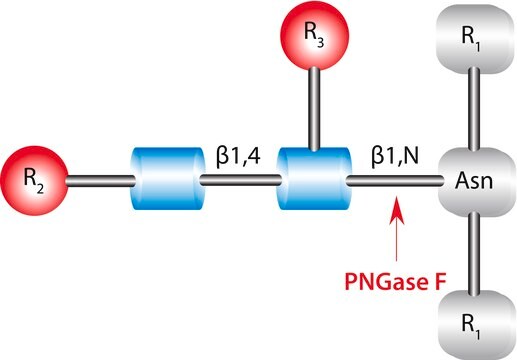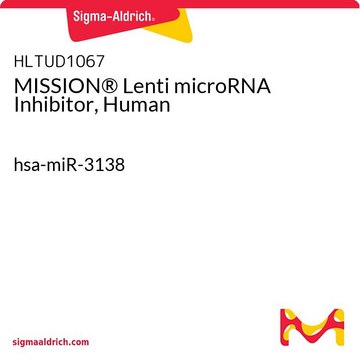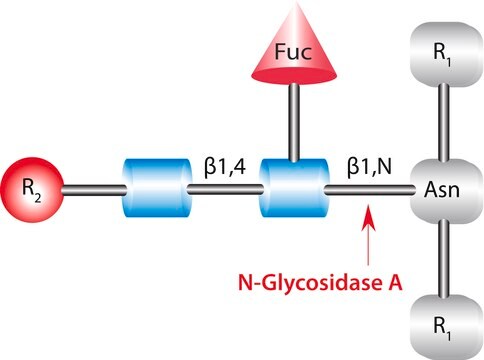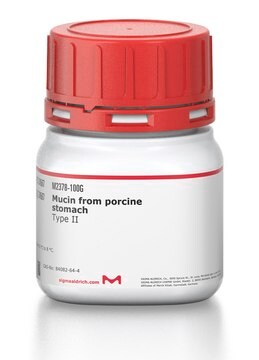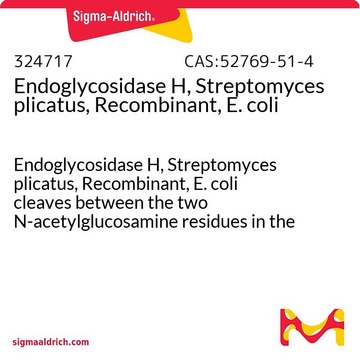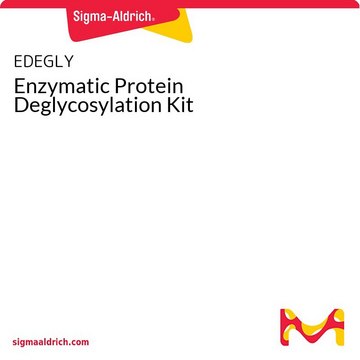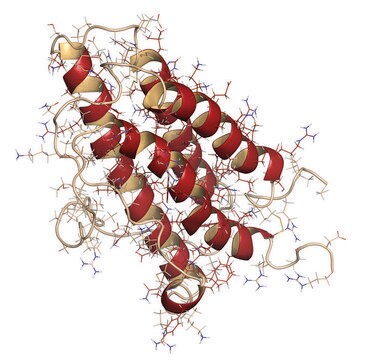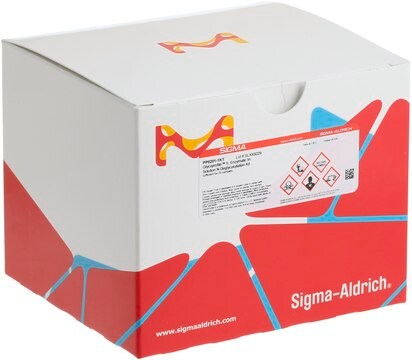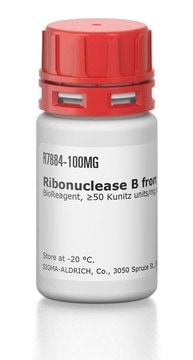F8435
PNGase F from Elizabethkingia meningoseptica
lyophilized powder, recombinant, expressed in E. coli
Synonym(s):
N-Glycosidase F, PNGase F from Chryseobacterium meningosepticum, PNGase F from Flavobacterium meningosepticum, Peptide N-glycosidase
About This Item
Recommended Products
recombinant
expressed in E. coli
Quality Level
conjugate
(N-linked)
grade
Proteomics Grade
form
lyophilized powder
specific activity
≥1,000 U/mg
shelf life
≥1 weeks at 2‑8 °C (for reconstituted solution)
≥1 yr at -20 °C
mol wt
~36 kDa
shipped in
wet ice
storage temp.
−20°C
Looking for similar products? Visit Product Comparison Guide
Application
Biochem/physiol Actions
Packaging
Unit Definition
Signal Word
Danger
Hazard Statements
Precautionary Statements
Hazard Classifications
Resp. Sens. 1
Storage Class Code
11 - Combustible Solids
WGK
WGK 3
Flash Point(F)
Not applicable
Flash Point(C)
Not applicable
Choose from one of the most recent versions:
Certificates of Analysis (COA)
Don't see the Right Version?
If you require a particular version, you can look up a specific certificate by the Lot or Batch number.
Already Own This Product?
Find documentation for the products that you have recently purchased in the Document Library.
Customers Also Viewed
Our team of scientists has experience in all areas of research including Life Science, Material Science, Chemical Synthesis, Chromatography, Analytical and many others.
Contact Technical Service